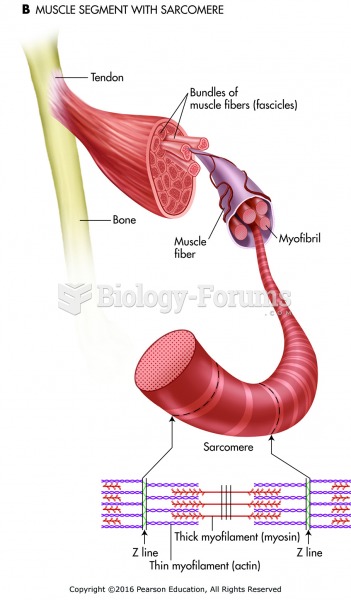|
|
|
Asthma-like symptoms were first recorded about 3,500 years ago in Egypt. The first manuscript specifically written about asthma was in the year 1190, describing a condition characterized by sudden breathlessness. The treatments listed in this manuscript include chicken soup, herbs, and sexual abstinence.
Vital signs (blood pressure, temperature, pulse rate, respiration rate) should be taken before any drug administration. Patients should be informed not to use tobacco or caffeine at least 30 minutes before their appointment.
The first war in which wide-scale use of anesthetics occurred was the Civil War, and 80% of all wounds were in the extremities.
The people with the highest levels of LDL are Mexican American males and non-Hispanic black females.
The strongest synthetic topical retinoid drug available, tazarotene, is used to treat sun-damaged skin, acne, and psoriasis.
 Nurses may collaborate with social workers, physicians, and other members of the health care team to
Nurses may collaborate with social workers, physicians, and other members of the health care team to
 In the communication technique of collaborating, the nurse sends the message that the nurse and pati
In the communication technique of collaborating, the nurse sends the message that the nurse and pati
 Over the past four decades, the self-reported health of married men and women has remained high, ...
Over the past four decades, the self-reported health of married men and women has remained high, ...




